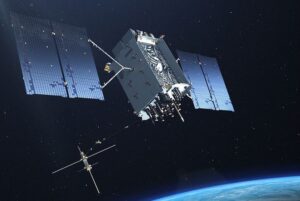
The House Armed Services Committee's Strategic Forces panel wants DoD to provide quarterly updates on the fielding of GPS military code (M-code) receivers until the latter achieve full operational capability under the Military GPS User Equipment (MGUE) program. "Not later than February 1, 15, 2024, and quarterly thereafter, the co-Chairs of the Council on Oversight of the Department of Defense Positioning, Navigation, and Timing Enterprise, shall provide to the congressional defense committees a briefing on the status of the implementation…














